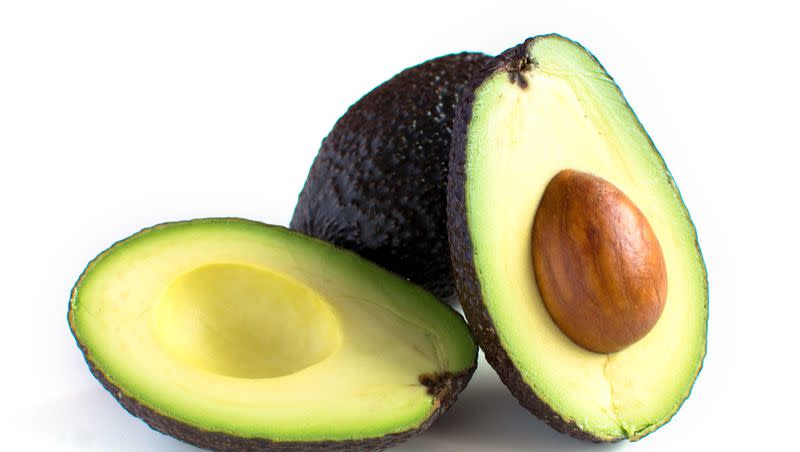5 foods for healthy, glowing skin

As the saying goes, you are what you eat. A skin regime only takes you so far — if you want to maintain a youthful glow, you must also eat foods such as avocado and fish, which help skin health and appearance, according to studies.
“In the bigger context, skin is a part of the body and you can’t just rely on topical treatment to keep your skin in great health,” said Dr. Zhaoping Li, chief of the division of clinical nutrition at UCLA, per UCLA Health.
“Skin health is only going to go so far, especially if your body is not in the best condition.”
Let’s look at five foods that benefit skin health.
Related
1. Avocados improve skin appearance
Avocados are rich with healthy fats. Eating healthy fats benefits your body in several ways, including your skin’s appearance. Incorporating healthy fats, like avocados, into your diet can help keep skin flexible, wrinkle-free and moisturized, per Healthline.
Regularly eating avocados can increase skin elasticity and firmness, according to a 2022 study from UCLA’s Center for Human Nutrition.
Throughout the study, 39 women were instructed to eat an avocado every day. Those in the control group was told to maintain their typical diet. After two months, researchers found that the women who incorporated avocados into their daily diet showed a significant increase in skin firmness and elasticity.
“This study showed more accurately that if you want your skin to be young and vibrant, then the best approach is not just topicals, but improving your whole diet. When you take care of your entire body with proper nutrition then your skin is going to reflect that,” said Li, per UCLA Health.
2. Vitamin C-rich vegetables and fruits
Vitamin C is an antioxidant which helps fight damaging UV-rays and stimulates collagen production, which serves as a main building block for skin and helps prevent aging, according to GoodRx Health.
Some foods packed with vitamin C include citrus fruits, broccoli, bell peppers, kiwi and strawberries, per Cleveland Health Clinic.
A 2017 study review dove into the role vitamin C plays in maintaining healthy skin and how increased vitamin C intake benefitted the skin. Researchers found that vitamin C consumption boasts several benefits for skin health and appearance, such as:
Good skin is associated with fruit and vegetable consumption.
Vitamin C can repair signs of aging in the skin.
Vitamin C assists in wound healing and minimizes scarring.
Skin tissue is dependent on vitamin C for building collagen.
3. Fatty fish may fight inflammatory skin
Fatty fish such as tuna, salmon, mackerel and sardines are packed with omega-3 fatty acids, which battle inflammation and help preserve collagen in the skin, reports Cleveland Health Clinic. Consuming enough omega-3 fatty acids is essential to thick, glowing and moisturized skin. Also, deficiency in omega-3 fatty acids can cause dry skin, according to a 2010 study.
A study found that fish oil supplements might help fight inflammatory and autoimmune disease that impact the skin such as lupus and psoriasis.
A 2018 review published in Marine Drugs shares that fatty fish oil and omega-3 fatty acids can help improve overall skin condition by promoting skin healing, improving skin barrier function, maintaining skin homeostasis and inhibiting inflammation.
4. Dark chocolate may protect your skin from sun damage
Protection from sun damage is another benefit dark chocolate offers. The antioxidants found in dark chocolate may increase blood flow to your skin and help protect it from sun damage, according to a 2021 study. The flavanols in dark chocolate can increase skin density and hydration.
A small 2009 study found regularly eating chocolate high in flavanols was linked to significant skin protection from ultraviolet damage. Milk chocolate did not have an impact on sun protection.
Women who ate cocoa powder high in antioxidants each day for 6-12 weeks experienced more hydrated and thicker skin, according to a 2006 study. Their skin was also softer, less scaly and slower to burn.
Related
5. Soy may improve skin elasticity
Soy comes from soybeans, a legume which contains isoflavones, a plant compound that can mimic estrogen, per Healthline.
A 2007 study found that middle-aged women who ate soy isoflavones every day for two to three months experienced improvement of fine wrinkles and skin elasticity. The control group did not see changes in their skin appearance.
Another study found that in postmenopausal women, soy may help improve skin dryness, increase collagen production and increase skin thickness.
